Going to the hospital can be a stressful experience, doubly so if an ambulance is involved in some way, shape or form. Fortunately, the truth is that the professionals treating you spent a lot of time and effort to get to their position. But that doesn’t mean that accidents don’t happen.
Someone asked “Medical professionals, what mistake have you made in your medical career that, because of the outcome, you’ve never forgotten?” and people shared their stories from fortunately comical to downright grim. So get comfortable as you read through, upvote your favorites and be sure to share your thoughts in the comments down below.
Discover more in “I Was Horrified”: 34 Surgeons And Doctors Recall Their Worst Mistakes
Click here & follow us for more lists, facts, and stories.
#1
This isn’t so much a medical error, but a time I feel that I failed my patient. I was on my first clinical rotation in a rural Emergency Room, and a woman came in with a miscarriage, her second one. While we were talking she mentioned she was new to town, didn’t know anyone, and her husband was away for the weekend. When we told her the diagnosis, her eyes became teary, and then we left to make arrangements. The doc didn’t say he was sorry for her loss or comfort her in anyway, which I instinctively wanted to do.
When I went back in her room to give her appointment time, she was in pieces. It really gets me. The five seconds it would have taken me to say those words, put a hand on her shoulder, call someone, or just offer some tissues, ugh anything but I didn’t do it. Instead I let my fear of not knowing if I would be showing too much emotion or slowing down the doc, stop me from being human. The silver lining is now I do what my gut tells me. I’ve soothed babies from exhausted parents, picked up crying family members off the floor, and even discussed comic book heroes with kids getting stitches because that’s the kind of person I am, and doctor I want to become.

© Photo: 2_hertz
#2
Pharmacy technician here. I once was much too stressed and I was rushing. Instead of prednisone 5mg, I used prednisone 50mg. The pharmacist checked it and didn’t catch it, but I realized when I was putting my stock bottles away. Luckily it hadn’t gone out yet so I fixed the mistake and vowed to be 100% dedicated to one task at a time. A few months later somebody made the exact same mistake but did not catch it, and the patient ended up in the hospital for a few months. (Prednisone is a steroid).
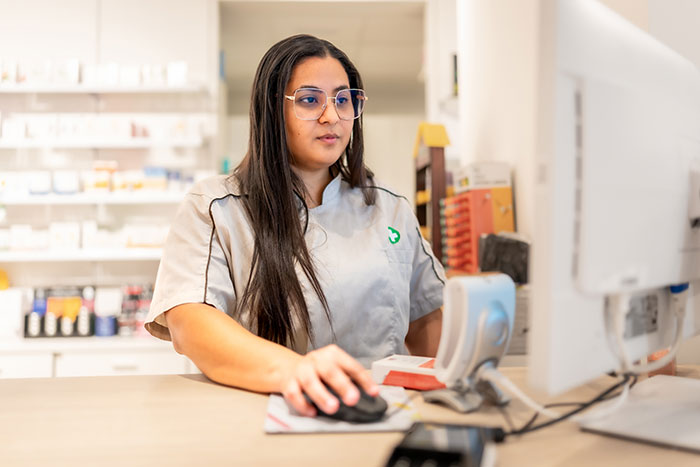
© Photo: rainbowbloodbath
#3
This is something a little narrower to my field than a lot of these. I work in Palliative Care, and in the fall I sent a patient home to see if he could die there instead of in hospital. We weren’t very hopeful, but thought it would be worth a try. To no one’s great surprise (even his and his wife’s), he ended up coming back a couple of days later for whatever reason.
I re-admitted him, since I knew him. I knew he wanted to be a DNR (do not resuscitate). I wrote it on my note. But I didn’t re-fill out the hospital paperwork. The next day, I got to work to discover he’d been coded and was on a ventilator in the ICU. Instead of passing peacefully, his wife had to make the decision to turn off life support. My entire job at the end of life is to ensure as good a death as I can. And in one simple omission, I messed that up royally.
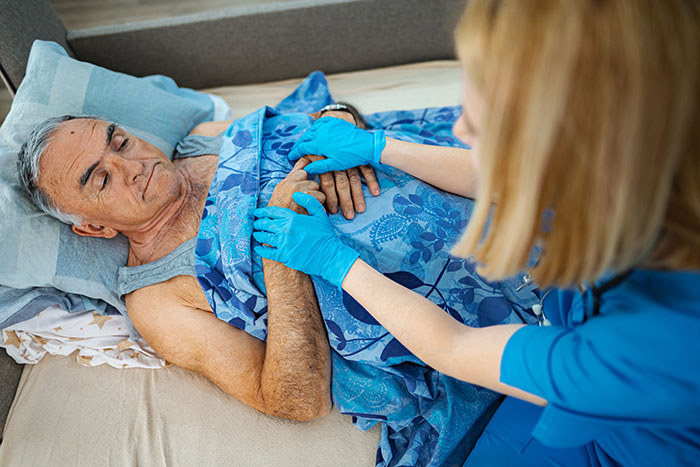
© Photo: Punderstruck
#4
I do HIV testing and once I showed up to work super tired because I couldn’t sleep the night before. This guy comes in for a test, we go through the pre-counseling and then I tell him to step out for a few minutes while the results come up. Once he comes back to get his results, I tell him to take a sit and the first thing that came out of my mouth was “Your results are positive” and then I saw the look on his face and that’s when I realized I messed up. I then said” Oh no no no, I meant to say negative.” I almost gave the guy a heart attack :/
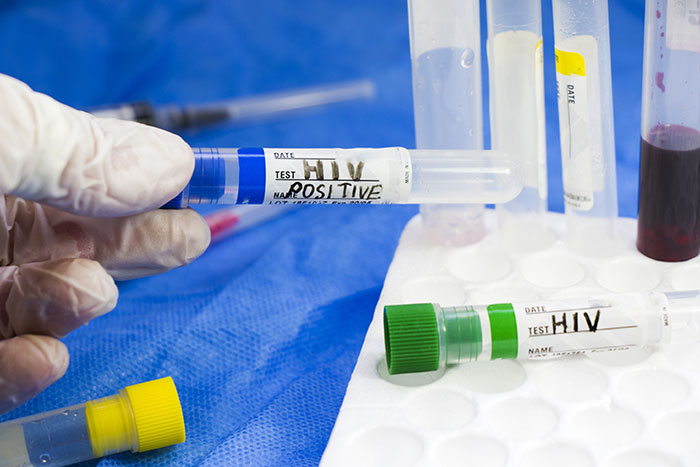
© Photo: hatemachine01
#5
I once said “wow that’s really cool” after listening to his LVAD for the first time.
That’s a left ventricular assist device for heart failure that continuously circulates in a parallel circuit to the left ventricle to keep the patient alive.
He joked “it’s really cool if it’s not inside you” and I said “oh right, I meant the sound and the technology but yes I’m sorry about that.” He was a jokester, very happy, but it did make me think twice before opening my mouth again in certain situations. It was a cool piece of technology, but the patients interpretation of your words is paramount.
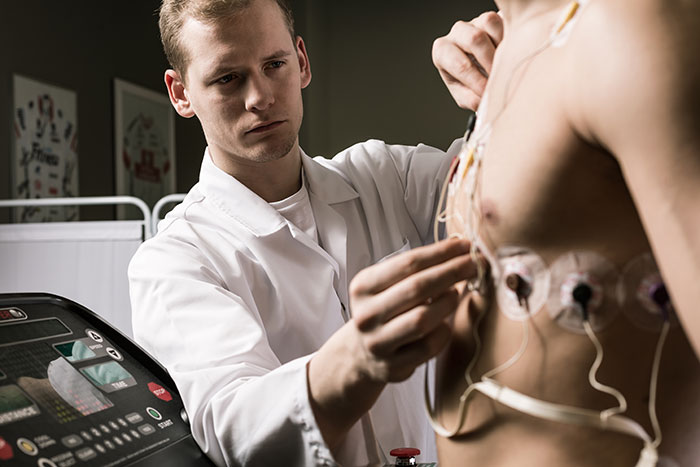
© Photo: bitcoinnillionaire
#6
I was a medic in Israel and most of the time I was on a special ambulance for extreme emergencies or dangerous runs. After an overnight shift with that one I overheard that one of the morning shift medics didn’t show up for a regular ambulance so I offered to take his spot. Well I didn’t realize at that moment that the driver and other medic were both very orthodox religious but when I did I said whatever and went with them. On the ambulance there’s a hierarchy and in this one I was on the bottom rung mostly because I was only 18.
We get a call for an unconscious woman at a bus stop. We get there and it’s a visibly homeless woman who’s not breathing, has a very weak pulse, and a locked jaw. In this case you’re supposed to break the jaw to open the airway but the other two refused to because they were men and she a woman and they physically stopped me from intervening beyond trying to tilt her head back. We watched her die and called the coroner and took off immediately after they arrived. I stopped working with them immediately after and went home. The next day I filled a complaint but it wasn’t taken seriously other than I wasn’t allowed to be on their ambulance again. I’ll never forget that call.
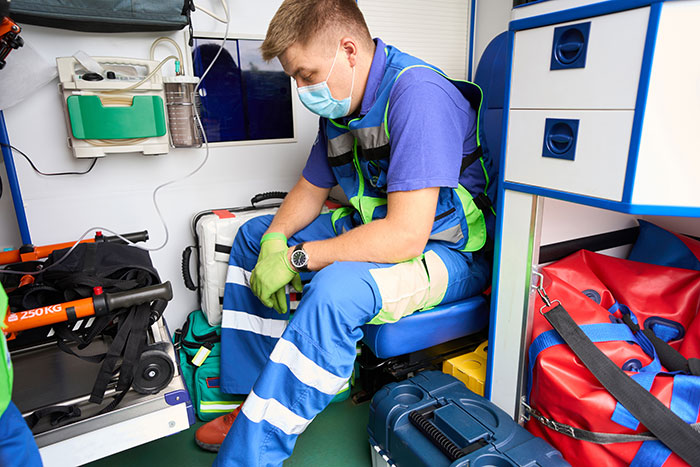
© Photo: SethLevy
#7
I’m a Cardiac Cath Lab Tech at another hospital, I’ve been in the medical field for almost 6 years.
I was being cross trained into Computed Tomography recently and was thrown into my first night shift by myself after a quick month of training. I had a script I spoke every time I would hook someone up to our power injector for a contrast study (The weird stuff that makes you feel like you pee all over yourself). The injector I used in Cath lab is a HELL of alot bigger and scarier than this little thing, but they are still dangerous as hell. I also don’t worry about blowing IVs in cath lab since we normally go through a much tougher femoral or radial artery.
We do two test injections of saline, one by hand and one my the injector to make sure the IV is patent and will tolerate the injection. 99% of the time this works and everyone is hunky dory; if it blows now the body will simply absorb the saline and you might get a bruise so no big deal. This time however the IV blew RIGHT at the beginning of the Contrast injection (Your body CAN’T absorb contrast in this fashion) and the little pressure waveform on the injector remained “normal” looking. She didn’t once cry out or scream as I injected 100cc of Iodinated contrast agent into her forearm and I only noticed something was off when I started my scan and saw ZERO contrast in her torso. I aborted the scan thinking the IV blew outside of the patient, walked into her quietly sobbing inside of the machine with an angry swollen arm about the diameter of a grapefruit. I pulled her out, wrapped a hot water soaked compress around her arm, held it over her head and rushed her back to the ER. I found out later she had to go to surgery for it and has long term nerve damage from the compartment syndrome she suffered. I’ve had people die on my table, I’ve been on a code team for my entire term in Cath. Lab ( I respond to Code Blue/ Cardiac Arrests) and see death and mutilation every day at my Level 1 Trauma hospital as the night tech. This one stuck with me since I felt I was directly responsible for it despite being cleared. It caused me to change my WHOLE approach when doing my contrast studies. I tell people to SCREAM if their arm does more than burn now when I inject. Insult me, throw a shoe at my window, hit the big red EMERG button on the wall, anything so I don’t disfigure someone again when my safeties fail and my machine lies to me. Sorry for the runon, I’m tired after a 16 hour shift.
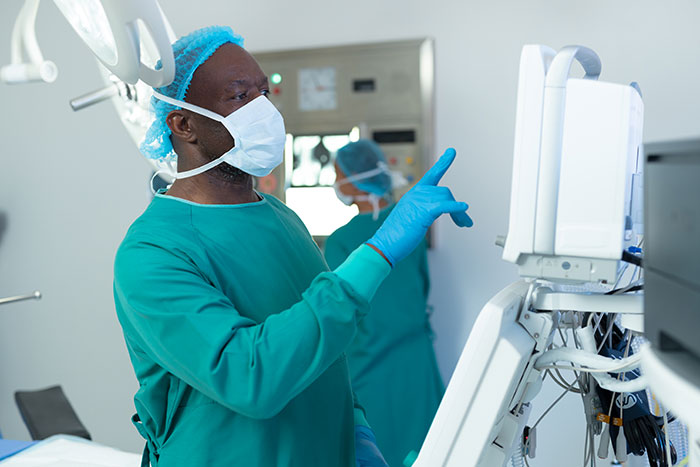
© Photo: lljkotaru
#8
When I was a new paramedic, we were called to a house for an unknown problem. We arrived and found our patient unresponsive but breathing on a bed. A friend of his found him after he hadn’t returned his phone calls- they were going out to do something that day, and he found it weird that the guy hadn’t called him yet, so he had gone to his house to investigate. The patient didn’t have any pill bottles laying around, and his friend didn’t know anything about the patient’s medical history. So, I loaded him up into the ambulance and started transporting to the hospital. Started an IV, did an ECG, drew bloodwork, the whole work up. Get him to the hospital, and the first thing the nurse asked was “what was his blood sugar level?” Oops. Forgot to check it. Turns out, it was incredibly low- which is completely treatable, and probably wouldn’t have required transporting him to the hospital if corrected on scene. Every patient gets a blood sugar check now.
Edit: Got back from a call and this is no longer at the bottom of the thread apparently. Yes, the patient probably would have been transported anyway, but I still would have initiated treatment on the scene and fixed the underlying problem. But this isn’t really the place for a discussion of the management of hypoglycemia in the pre-hospital setting- that’s for r/ems :).
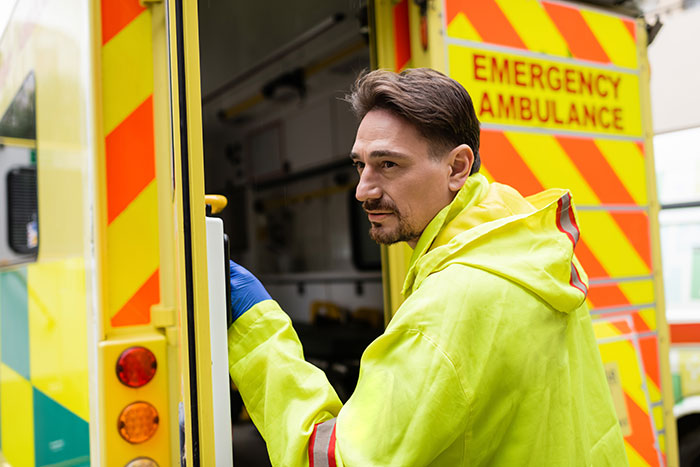
© Photo: Yourenotgoingtodie
#9
In 2 years of clinical rotations during med school, I had encountered a patient (we’ll call him Bob) many times. Everyone knew Bob. He had spina bifida with lower body paralysis that also lead to many other problems. Despite his poor lot in life, he was always really optimistic and cool about it all. Even when cleaning out a rectal ulcer for him, one of the worst smells I’ve ever encountered in my life, he was still able to joke around and make the procedure no different than applying a bandaid.
Eventually, Bob had signed a DNR order, and requested no further surgeries. He was mid 20s, and just tired of all the procedures.
Anyway, I was on a 24 hour call when the nurse paged me to come check on her patient, and sure enough, it’s Bob. We know each other by this point, say hi, then I see that one leg is purple and twice the size of the other. Obvious blood clot and occlusion.
I go wake up the senior resident on call, we rush to Bob, we call the surgery resident on call, and they start prepping for immediate surgery. We hurriedly talk Bob into consenting, which he reluctantly does.
What we didn’t do was call his main doctor, or slow down to actually talk to Bob, or notify any of his family. And that fact haunts me years later. Bob did not wake up from the surgery.
His family and his doctor all arrived at the hospital that morning to find him not in his room, but in the OR. He died in exactly the way he had decided he did not want to go, and no one got the chance to say goodbye.
Everything we did may have been medically correct. But that doesn’t make it not wrong. We were all new doctors so eager to save lives that we never stopped to wonder if we were saving the person.
I wish I could tell his family I’m sorry.
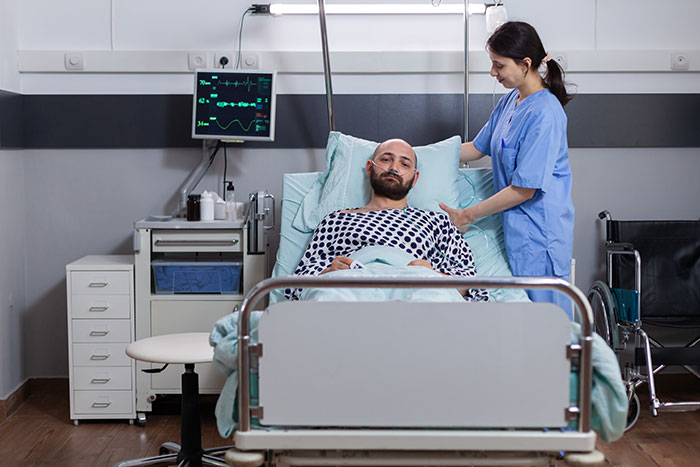
© Photo: toolatealreadyfapped
#10
I am a nuclear medicine technologist working in a PET department. I deal mostly with cancer patients. Prior to exams, I’ll ask the patients why they are having the test done and for any other vital information. One day, a female patient told me she found a lump, had a mammogram, a biopsy, and it turned out to be stage four invasive ductal breast cancer. Having confirmed the information I had on my sheet with the patient, I made the mistake of saying, “Sounds good.” To which she replied, “No, it’s actually pretty terrible,” and she broke down in tears. I will never say sounds good again when a patient tells me his or her diagnosis.

© Photo: jlong4140
#11
If you work as a physician in any acute setting, don’t dress up for Halloween. My supervising resident had to tell a family that their daughter had cancer while dressed as Cat in the Hat. (respectfully, he took off the hat.)
Myself personally, I lucked out. Considered starting medication for a young woman, gave her the script. 4 days later she found out she was pregnant. My prescription has clear teratogenic effects. I was sweating bullets. Fortunately, she decided against taking the prescription and I found out from our pharmacist that she didn’t fill it. I left a message “don’t take it!!” and she called me back thanking me for being such a great doctor. BETA HCG FOR EVERY GODDAMMED FEMALE WITHIN SHOUTING DISTANCE OF FERTILITY.
Edit: becsuse many people have commented on the Halloween thing, I think our hospital has it well figured out. I work in a children’s hospital and what we do is take turns “trick or treating” (visiting kids and bringing treats while dressed up), for like one hour. So we get to have fun and wear costumes but we also don’t do clinical work whole dressed up.
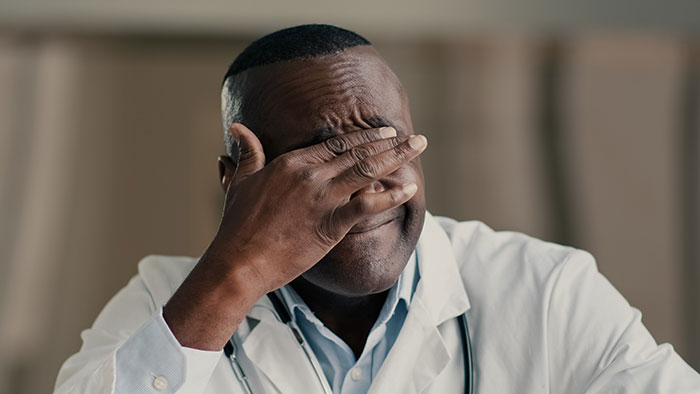
© Photo: gracepark
#12
I was a third year medical student on my surgery rotation at Cook County Hospital back in the mid-1990s when it was still in the old building. It was a chaotic mess. I was post-call and in clinic and saw a patient who had some type of intra-abdominal procedure and was in for follow-up. He lived in a trailer park on the far south side of the city, was poor as dirt, and clearly wasn’t thriving post-op. He was dehydrated and we were concerned that he had a ileus (bowels weren’t moving). I was told to admit him. I told the transporter to take him over to the surgical ward, but somehow forgot to write admission orders, so he went over with no paperwork.
He ended up getting put in a bed, and stayed there. For 3 days. With no paperwork. He got IV fluids and bed rest for 3 days, but because no admission orders went over, he never got entered into the computer system. He never showed up on our list of patients. The nurses just kept changing his IV fluids. He had no vitals, no nothing. Well, 3 days later we were on rounds, and walked past his cube (it was an open wall with cubicles at the time) and my senior resident stopped and said, “Who the hell is this guy?” The patient poked his head out, pointed at me and said, “Hi Doc! When can I go home. I feel great.” He was completely better (probably because we did nothing to him). My junior resident whispered to me that I should just quickly (and quietly) write up admitting orders and discharge orders.
Two lessons: 1.) always do your paperwork/orders right away; 2.) sometimes the less we do to/for patients the better.

© Photo: Oculata
#13
I’m a lab tech and used to work in Histology when I was new. I got a skin biopsy specimen and that day I was embedding , basically putting the fixed tissue into wax so it could be mounted on a cutting block to slice 3 micrometer sections for staining.
It’s very important what side you place “down”, based on how it was cut out of the body. Well I messed up and placed it sideways instead of down.
The person cutting the tissue couldn’t tell and ended I’ll cutting through the tissue.
This was a problem because the patient had skin cancer and they were looking at how far it had spread. Since it was cut too deep they couldn’t see the edges anymore. This means the doctor had to cut a bigger piece of skin off to be sure they got it all.
That’s when I found out it was a skin biopsy from the patient’s nose. This patient had to have a bigger, potentially unnecessary, piece of skin from his face cut off because of me.
I was horrified and learned my lesson that day on how important it is to be certain of embedding technique.

© Photo: matdex
#14
I worked as an OR porter for a number of years to help me through school. I was cleaning up after an operation on an inmate who was Hep C & HIV+ and I was working quickly and recklessly. I stuffed the blue matting and used aprons into the garbage and as I pulled up from the garbage, blood was pouring from my hand.
Unseen and unknown to me, a doc or nurse had left a scalpel in the blue matting. It is/was so sharp that when it cut me, I didn’t even feel it but I was bleeding profusely.
The nurses and docs jumped on it right away, cleaned and prepped my cut and got me on special meds right away. I had to get shots and check ups regularly for the next year.
Luckily, I was okay.
What I learned: work slowly and/or carefully especially in high risk situations. Complacency is your enemy.
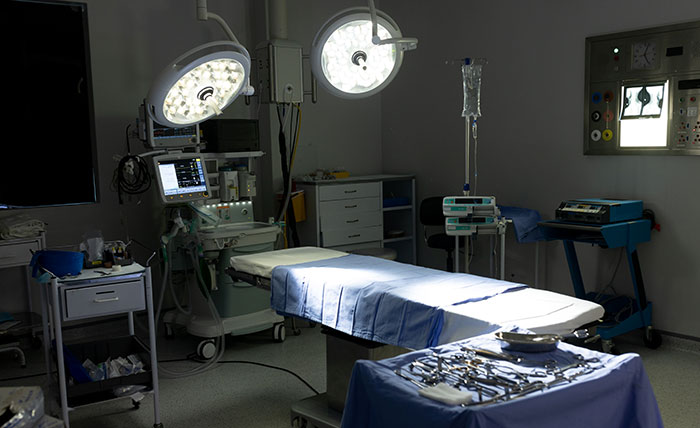
© Photo: Bigdaddy771
#15
I was a final year student at an overseas hospital working a in a few busy trauma ED. Patient came in complaining of pain in her lower leg. Past medical history of CCF and T2DM.
2 days earlier she had been in after a fall at home, been sutured and sent home.
I examined the patient who was stable, with pain out of proportion. I undid the sutures and serous fluid came out. I ordered an U/S which showed no DVT. I discussed the case with the registrar but did not ask for them to review the patient. They advised discharge with oral antibiotics and simple analgesia.
The next day I came in form morning round the find the patient tubed and on inotropic support. My heart sank. I pulled back the sheets and saw gas locules half way up her thigh… Patient was taken to theatre, had a hindquarter amputation and sent to ICU. I left the next day and didn’t get to follow her up but like passed away.
Pain out of proportion terrifies me. I’ve stopped calling people wimps or hypochondriacs. They get imagine, ortho review, full bloods etc. I recently x-rayed someone’s leg looking for gas. It will forever change my practice, though the yield on these extra investigations is likely small and one day I’ll find an incidentaloma.

© Photo: seabass85
#16
Med student here. A few years ago, when I was working as a medical assistant in an interventional pain management clinic, I was asked by the doctor to place a grounding pad (a sticky pad like they use for EKGs) on the patient’s leg during a radiofrequency (RF) nerve ablation procedure. The patient had some lotion or something on her leg that was keeping the pad from sticking properly, but it seemed to be mostly well attached and I didn’t want to hold up the procedure to get another pad or clean off the patient’s leg. The pad ended up partially coming off right as the high-voltage RF was being applied, causing a small burn on her leg. There was no lasting damage done and the patient was very understanding, but I still felt horrible. It was the first time I had caused harm to a patient, and it could easily have been avoided had I just spoken up. Now I never hesitate to say something if I have even a slight feeling that something is off. Nothing is more important than a patient’s well-being.

© Photo: derpaturescience
#17
I was a hospice nurse for 10 years. I admitted a patient with cancer who had intractable bone pain, with what I expected to be a week or two before he died, based on my assessment. In his case, the only medication that gave him any relief was morphine. His wife did a great job taking care of him and giving him his meds as we planned. It was very effective and the he was comfortable.
As he came closer to his death he was sleeping more, which is normal and expected, and a daughter flew in to be with him at the end. She went crazy that “daddy was on morphine” and raised so much hell that his wife freaked out and caved to her demands, revoked hospice and called the ambulance. When he got to the hospital, the daughter told them that he had taken too much morphine and the ER room doctor gave him Narcan. He came out of it screaming in pain, and didnt stop. He stayed in the hospital until he died, and he really suffered. It’s been years since this happened and it’s still the worst nightmare of my nursing career. There really wasn’t anything I could have done because I spent alot of time teaching his wife what to do and what to expect, but I still feel bad about it.
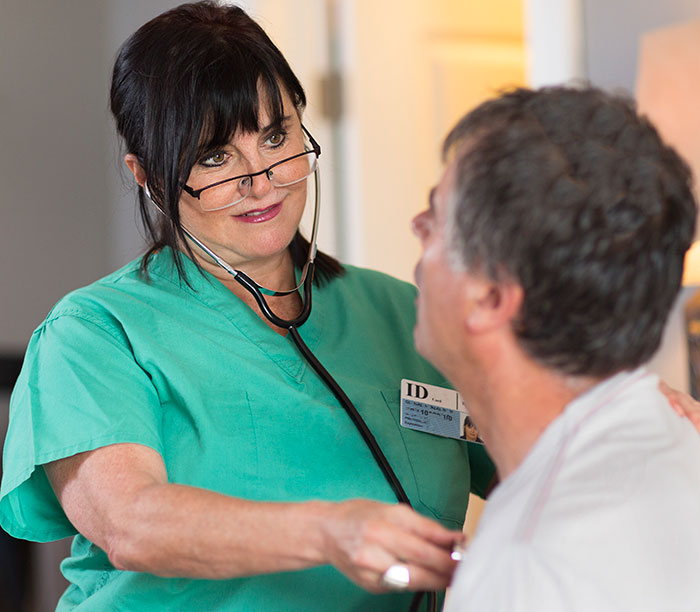
© Photo: Clamdilicus
#18
This one took me years to get over. When I was a medical student on my surgery rotation, I was in the OR with only the attending surgeon. The residents on service were otherwise busy, so the attending (somewhat impatiently) decides, “Fine, I’ll do it with just the med student.” It’s a relatively straightforward case, placing a gastric tube for a patient who couldn’t eat. The institution I now work at frequently does these under laparoscopic visualization, which is seen as overly cautious by some. Not me.
The attending puts a scope down the patient’s esophagus and I have a big needle to push toward the scope. He shines a light towards the skin when he’s entered the stomach and I press on the skin and see it dent in on the screen, showing we’re in the right place. I thought I took that exact same position and angle, and introduced the needle. Except it didn’t show up on screen. So I pulled back. Pressed again and tried again and didn’t see it. The attending grows frustrated and tells me to push the needle in deeper then. I had a twinge of concern, but eventually hubbed the needle, which was several inches long. Eventually, the resident shows up and tries as well, and tries introducing the needle but never can visualize it. Eventually, he switched places with the attending, and after another try, got the needle into the stomach and we finished placing the tube.
I come back after my day off to find out that that patient died from internal bleeding. One of the multiple needle pokes – or possibly a cumulative effect – had injured arteries in the abdomen. Now, I know not to ignore that twinge, and I know that even “low-risk” procedures have a risk of catastrophe and always take care to mention that when consenting patients for surgery. “Low-risk” not “no risk”.
I harbored guilt over it throughout medical school and still had hesitation the first time I did that procedure as a resident.
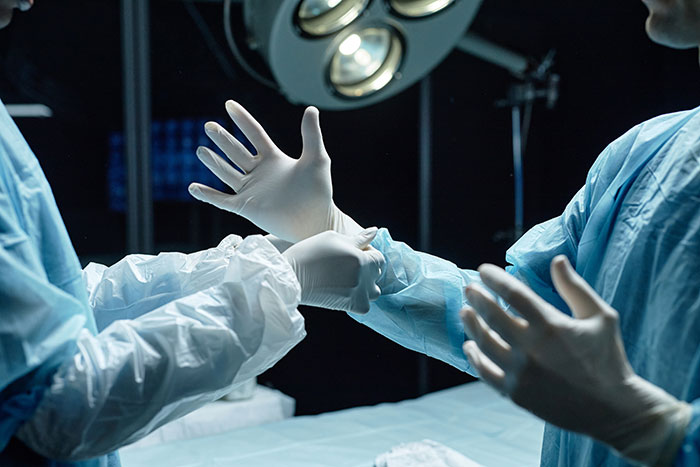
© Photo: drawlwhenidrink
#19
Not a misrake I made, but one I’ll never forget none the less.
Arrived to work at 2300hrs one Sunday evening. The attending was just discharging a middle aged women complaining of shoulder pain. She had been in the ER for 10 hours. Had xrays of her shoulder, ribs, chest and neck. Had a CT scan to r/o pulmonary embolism. Her diagnosis on discharge was costocondritis.
90 minutes later an ambulace calls in on the med-phone with a patient in full arrest. It was this woman.
10 hours in the ER with unexplained shoulder pain, and nobody ran a 12 lead EKG or cardiac enzymes.
Lesson of the day, all chest pain is cardiac until proven it isn’t.

© Photo: roentgens_fingers
#20
I was still a new EMT and had a new Paramedic as a partner. We got a call of a man with no pulse. We arrived and find a 350ish pound man in the middle of a water bed, no pulse. So the new Paramedic did a quick look with the paddles and decided to shock. The shock creates a muscle spasm and set off a series of events which led to the patient being wedged between the water bed mattress and frame. It was impossible for 2 of us to unwedge him, although there was a brief discussion of cutting the mattress and letting all the water out.
Never shock someone you can’t lift, on a water bed.
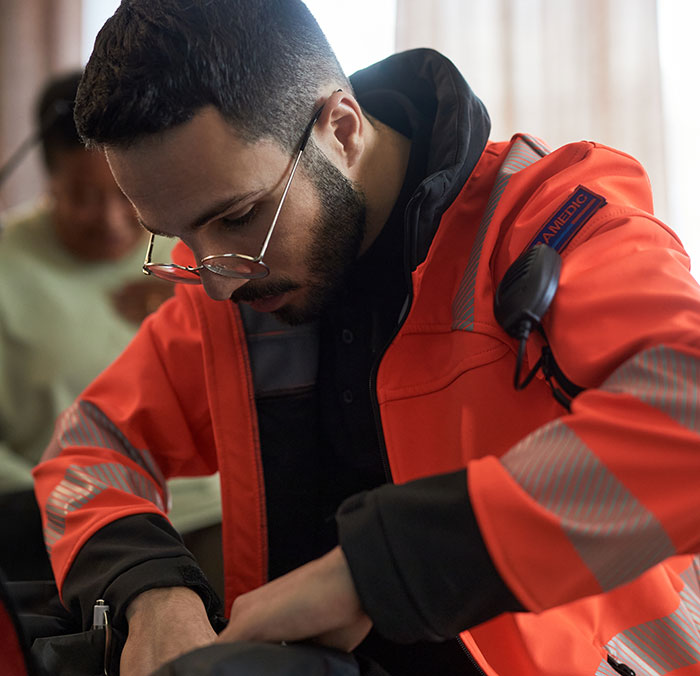
© Photo: Codeblue74
#21
As a paramedic intern I had one call in particular that still sticks with me.
We were called out for an early 40s male with chest pain. We get there to see a healthy guy sitting in his car breathing hard. I get a history from his wife and an initial assessment of the patient. Doesn’t have any history except for having anxiety problems and previously treated for abusing his anxiety meds. The patient described his symptoms as being just like when he has panic attacks. I hook him up to the monitor and everything looks fine. Slightly elevated heart rate but all of his other vitals seemed to be within normal limits.
I get him loaded into the ambulance and begin the 20 min transport to the hospital. I start treating him with meds for the chest pain protocol and I start an IV.
Then all hell breaks loose. He tells me his chest doesn’t hurt anymore but he can’t breathe. His vitals didn’t line up with respiratory issues but I put him on high flow oxygen just to be safe. As soon as I get the oxygen on him he starts losing it. He tells me he needs to get out of the ambulance. He starts standing up, ripping all the wires off of him, pulling the oxygen off, and even pulls his IV out. I struggle with him to keep him on the gurney and calm him down. I start another IV, he pulls it out. I hook him back up to the monitor, he pulls it off. Same with the oxygen.
The situation turns into me having to physically hold him down to keep him from jumping out of the ambulance on the freeway. I end up having to be pretty stern. I was yelling at him to sit down and stop fighting. I gave what little report I could to the hospital, holding the radio in one hand and his shirt collar in the other.
All I could tell them was we had an agitated patient initially complaining of chest pain which has resolved, and now seemingly having a panic attack. I didn’t use the words “panic attack” , because it isn’t my place to diagnose, but the description of the situation spoke for itself. I had no current vitals to give them, cardiac rhythm, nothing. I couldn’t even get him to keep an IV in.
When we finally get to the hospital we wheel him in, still holding him down. The moment we transfer him to the bed he goes from an agitated, fighting guy to a full cardiac arrest instantaneously. We worked him up in the ER bed for over 30 minutes. After the doc called time of death he came out of the room with us looking confused. “I thought you were bringing in a panic attack.” So did we.
To this day I have no idea why he died or what was wrong with him. I just couldn’t stop thinking that there was so much more I could have done for him had I been able to manage his anxiety. I was the last person to have a conversation with this guy and it consisted of me telling him to sit the down.
I had plenty of patients die before and after that, but that is the one that stung the most. I had never felt that helpless/confused before on a call.
TL;DR
Sense of impending doom is a real thing. Sometimes people know they are dying and they go into full fight or flight mode.
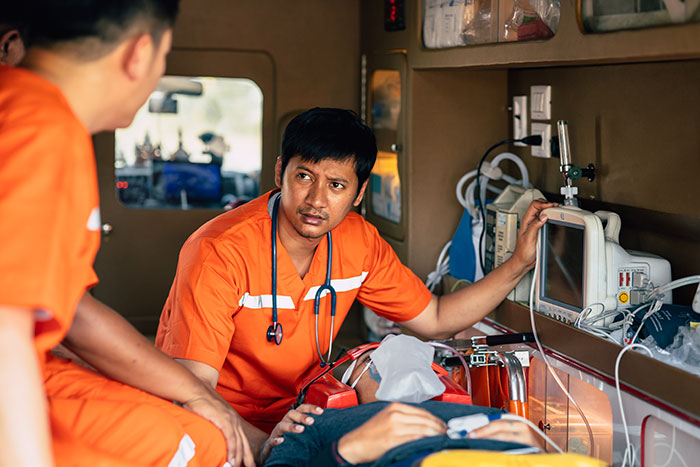
© Photo: swinnet
#22
True but not too serious.
I was a medical student looking after a boy of about 8 years who had broken his arm. He needed an IV but was terrified of needles. I was trying to calm him when he asked “will it be like what they did in the movie Elf?”. I had not seen Elf and I figured it must have been a pretty benign scene with that title. I said “Yes” and the kid went into hysterics. I saw the movie later and understood why the poor kid got so upset. I became an expert in Barney, Dora, Bob and Blue to try and prevent future misunderstandings. I watched some Teletubbies too, but it kind of freaked me out.
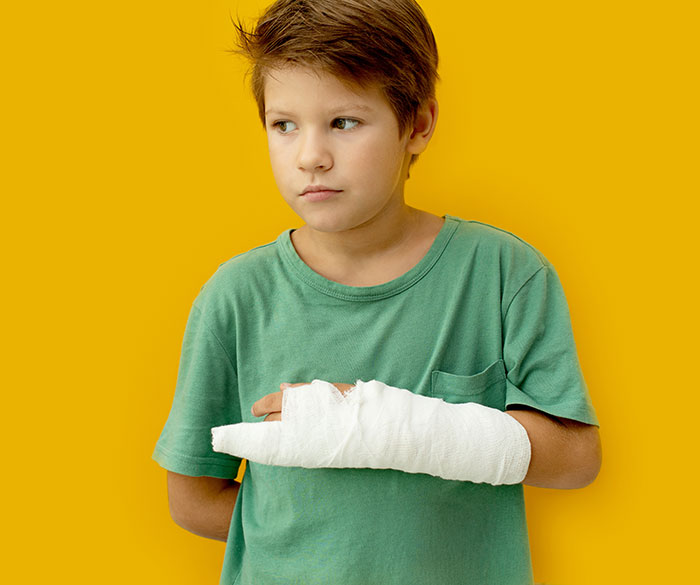
© Photo: anon
#23
Pharmacist here. I was working alone on a Saturday. Just before closing, a woman brought in 19 prescriptions for her husband who was just discharged from the hospital. Then a swarm of people came in after her and I kept getting interrupted by people who refused to wait until the next day for their Xanax. One of the prescriptions was isosorbide mononitrate, a heart/blood pressure pill. It was written for half a tab daily, and I filled it with instructions for one and a half. It was a normal dose that I saw often and was well within the dosing guidelines, but it was too much for him. Several days later he was re-admitted for low blood pressure and the prescribing physician caught my error. I called his wife to apologize from my personal number as soon as I found out. She was so understanding. She saw how crazy things were for me and understood how stressful the situation was. I offered to pay for the out of pocket costs of the additional hospitalization, but she would not accept. Unfortunately he was a very sick man and died two weeks later of issues not related to my error. It could have been much worse, but it really made me realize that I hated retail pharmacy and the lack of help that puts so much strain on pharmacists. I quit as soon as I found another type of pharmacist job and I am so much happier. It haunted me for a while, but I was able to get over it.

© Photo: TexasLizard
#24
I am a respiratory therapist and work most of the time either in an ICU or the emergency department. This one time, we had to resuscitate a patient who “coded” or cardiac arrested; I can’t seem to remember what was the cause. Due to me doing CPR, I displaced a few ribs off the sternum- which is common- but also managed to nick an artery- which is bad. The code team was wondering why the patient cannot sustain his heart beat, and you go through the possible causes, what we call the H’s and T’s, mnemonics why they cannot obtain a good pumping heartbeat. The doc got an ultrasound reading of the chest and true enough, the patient was bleeding like gangbusters, the whole inside of a chest cavity was socked in with blood, what we call a hemothorax. CPR made it worse too. The doc stuck a chest tube in to drain the blood while we kept on resuscitating the patient. The bleeding also didnt look like it was going to stop anytime soon so a cardiothoracic surgeon had to find out where the bleeding was coming from. Eventually, he died a day and a half later. Granted, his chances for meaningful survival was slim to none because his brain was starved of oxygen for a prolonged period of time, but his resuscitation effort was needlessly complicated by internal bleeding, no thanks to me.
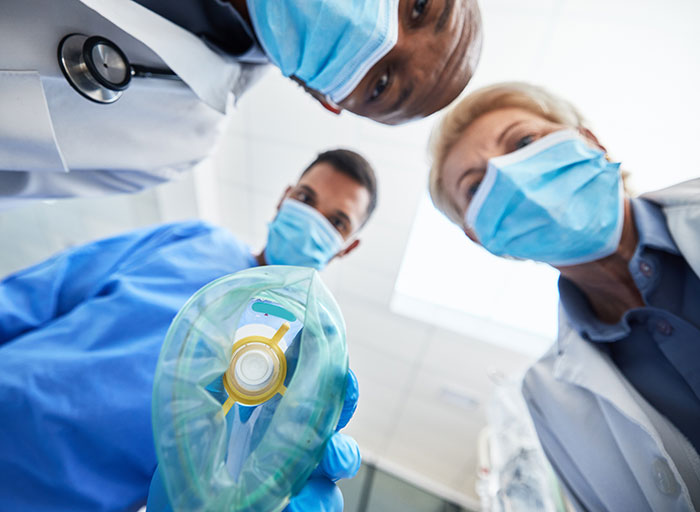
© Photo: ivan927
#25
I was in nursing school, and several of our clinical rotations were done at a sub-acute long term skilled nursing facility. There was one patient there who was an “old 80”–she was in the SNF because she’d just had her second above knee amputation. She had multiple bed sores, CHF, horrible diabetes that she never controlled (hence the amputation), everything.
A classmate and I were changing her brief and doing some simple wound care on her coccyx. I was holding the patient over to my side of the bed (she was very weak and not much of a help holding the bed rail) while my classmate cleaned her up. The patient started grabbing frantically at me. She had a history of anxiety, so I soothed her as my classmate finished up. We laid her on her back and elevated her head so she could catch her breath before I did my side. She seemed more at ease and let us finish up, but as we were leaving the room she coded.
This SNF was so small that most of the doctors only came in once a week, and none of them answered their phones to give orders during the code, so the nurses and a respiratory therapist ran it. Her intubation was traumatic, with blood coming out of her mouth. Her ribs were broken during CPR. That’s how her daughter saw her. She never came back to consciousness.
It was my first time talking to a family about DNR and what they wanted us to do to keep her alive. The daughter signed a DNR about 36 hours later and the patient was gone the next week when we were there for clinicals.
There wasn’t a mistake per se, but now I’m a lot more in tune with when patients try to get me to do or not do something. Even if they don’t know the reason for it, there always is one.

© Photo: grooviegurl
#26
Kind of humorous: I’m a nurse assistant (formerly worked in hospital with chemo patients).
One day I was in with a client/patient getting the room back in order after his morning bed bath. I had already put all my supplies away and had an armload of soiled linen about to leave the room when I asked if he needed anything else. He said no, he was fine. Well.. not skipping a beat, I say “I’ll just get out of your hair then…”
*FIFTYSHADESOFBLUSH*
Let’s just say… we were both shocked at what I had said, but he made a joke of it along the lines of “I don’t have any to hold you back” and I made sure I caught myself before it happened again.

© Photo: Gizmo767
#27
Not really a serious outcome but I’ll never forget my first mistake as an EMT. Patient was in the back of the ambulance in a gurney (duh), he required oxygen (he’s human afterall) via cannula (little nose thingys). Normally the gurney O2 tank is is much smaller than the house tank on the ambulance so we generally switch over the gurney to the ambulance tank. So basically there is now a small hose attached to the wall of the ambulance that feeds the patient delicious oxygen to his nose. This being my first time I forgot to switch back the hose to the gurney and upon removing the gurney from the back I essentially choked the hell out of his face when the hose tightened. Poor guy, he thought he did something wrong. I explained to him what happened and then he laughed about it. Found out later he still tried to sue. Ah well.
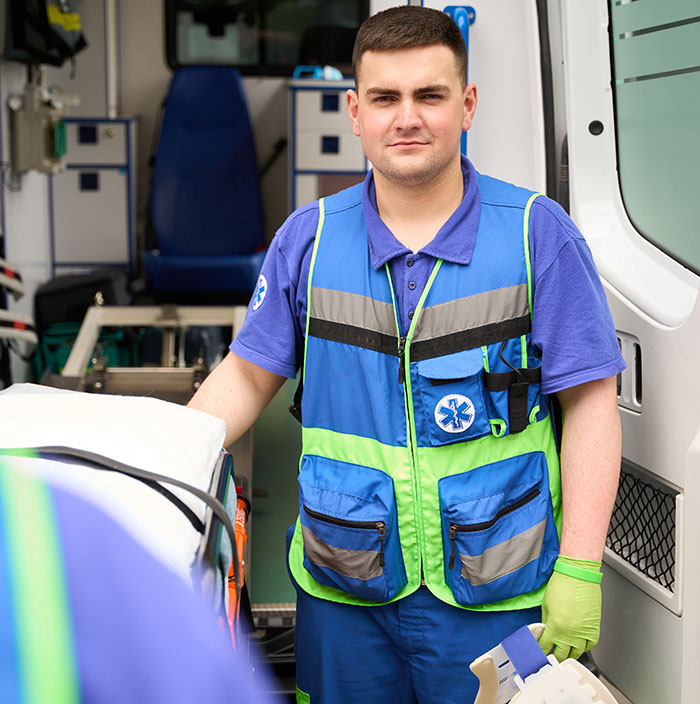
© Photo: anon
#28
Ill keep it short, cause im unfortunately busy. But young boy probably 6 came in with a gunshot to the head. Wasnt too bad, for what the Mechanism was but I made the executive choice to try and treat the head first which alone isnt wrong, turns out he also had femoral bleeding that was hidden a little. Died a few mins into treatment.

© Photo: RusskayaRuletka
#29
I am an internist. I will never forget the time I was an intern and had one of my first patients who was profoundly neutropenic, rigoring, and hypotensive who ended up crumping big time. Several lessons I learned from that…
– neutropenic patients can decompensate in a matter of several hours
– if a neutropenic patient looks sick…trust your gut…even if you can’t find the exact source
– should have given gentamicin sooner.

© Photo: anon
#30
As a former medic in the Army. My biggest mistake was thinking that I would be able to save everyone I touched. Boy was I wrong. Something I’m carrying with me on my journey into medical school.
Happy Memorial Day weekend!

© Photo: Jarnsalot
#31
This was a mistake that my pediatrician made with me when I was about 13 years old.
I had a sharp pain in the lower right side of my abdomen. The pain would come and go and increased with intensity each time. I told him it felt like someone was stabbing me over and over. He then proceeded to tell me it was intestinal cramps and did not run any tests.
Well, I dismissed that pain as intestinal cramps for the next three months, until one day I fell on the floor and literally could not get up from the pain.
I luckily had my cell phone and called my mom (who was at work) and told her what was happening. She picked me up (literally), put me in the back seat of the car and drove me to the hospital where they ran tests and immediately took me to the emergency operating room because my appendix had burst after being inflamed for so long.
I was in the hospital for two weeks and bedrest for another two at my house. I missed a month of middle school.
We tried to sue my pediatrician, but according to my mom, we didn’t really have a case because no organs were damaged and I did not die.
Needless enough to say, always get a second opinion/ do some research if you are in excruciating pain.
- You might also like: 19 People Share The Most Ridiculous Things They Have Ever Seen In An ER

© Photo: Heyitsfaye
from Bored Panda https://ift.tt/wGnWmgI
via IFTTT source site : boredpanda